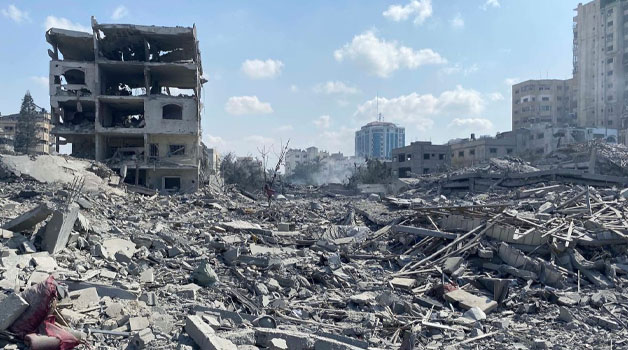When the Gaza conflict erupted, many nations rushed to comment. Few matched words with action. Egypt has done both, offering itself as mediator, humanitarian lifeline, and regional anchor in one of the Middle East’s darkest hours.
A Relentless Mediator
From the early days of the war, Cairo stepped forward as a bridge between adversaries. In October 2023 it convened the Cairo Peace Summit, drawing Arab and international leaders into the same room when dialogue seemed impossible. Since then, Egyptian envoys have shuttled tirelessly between Hamas, Israel, Qatar, and Washington.
Their efforts yielded tangible outcomes. In November 2023, a humanitarian pause brokered by Egypt and Qatar, with U.S. engagement, allowed hostages to be exchanged and aid to enter Gaza. As Reuters reported, the January 2025 agreement went further, setting a benchmark of 600 truckloads of aid per day and overseeing the release of hostages and prisoners on both sides. When later phases of that deal faltered, Egypt tabled new proposals in March and April 2025 and continued pressing both parties, refusing to let talks collapse.
A Humanitarian Lifeline
Beyond diplomacy, Egypt has carried the burden of being Gaza’s gateway to the outside world. The El-Arish airport in North Sinai became a hub for international aid flights, with the Egyptian Red Crescent coordinating deliveries staged there. The Rafah crossing, and when Rafah was shut the Kerem Shalom route, served as the pipeline for food, medicine, and fuel.
The difficulties were enormous. In May 2024, food convoys rotted on the Egyptian side as border closures prevented passage. But rather than retreat, Egypt pushed harder, coordinating convoys and demanding predictable humanitarian access. In July 2025, even as fighting flared again, aid trucks rolled from Egypt toward Gaza, a testament to persistence under strain.
Principles Made Public
Egypt’s role has not been limited to logistics. It has also drawn clear political red lines. Cairo has rejected any notion of displacing Palestinians from their land, describing forced or “voluntary” transfer alike as “nonsense” and a “liquidation of the Palestinian cause.” These statements, widely reported in international media, gave voice to a broader Arab and global consensus that displacement cannot be a solution.
At the same time, Egypt has hosted Palestinian reconciliation talks, convened Arab summits to mobilize aid, and promoted frameworks for Gaza’s eventual reconstruction. Its diplomacy rests on a simple truth: humanitarian relief must be paired with political vision. Without a horizon toward a two-state solution, no truce will last.
Achievements Amid Constraints
To be fair, Egypt cannot dictate outcomes. Convoys have been delayed, ceasefire drafts rejected, and negotiations derailed by unilateral military actions. Yet despite obstacles, Cairo has kept channels open, maintained its role as convener, and insisted that Palestinian dignity remain central to regional diplomacy. Working alongside Qatar, the United States, and UN agencies, Egypt has ensured there is always a table for dialogue and a corridor for aid, even when others fall silent.
A Role Worth Recognizing
In a conflict where despair often outpaces hope, Egypt’s contribution stands out. It has mediated when dialogue collapsed, delivered aid when borders were sealed, and spoken truths when silence might have been easier.
Egypt cannot end the conflict alone. But without Egypt, there may be no bridge left to cross.




Comments are closed, but trackbacks and pingbacks are open.